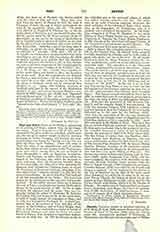

Nepveu, FRANCIS, writer on ascetical subjects, b. at St. Malo, April 29, 1639; entered the novitiate of the Society of Jesus October 12, 1654, when but fifteen years old. Successively professor of Grammar, of Humanities and Rhetoric for six years, and of Philosophy for eight years, he was afterwards employed in the government. In 1679 he was made superior at Nantes; in 1684 rector at Vannes; in 1694 and 1700 rector at Orleans; in 1697 at Rouen; in 1704 at Rennes where he was director of retreats until his death, February 17, 1708. Father Nepveu, described as a man of great zeal and intelligence, wrote voluminously on ascetical subjects, and some of his works have gone through many editions, having been translated into various languages. Among his more important works are numbered the following: “De l’amour de Notre Seigneur Jésus-Christ, et des Moyens de l’acquérir” (Nantes, 1684), has gone through no less than fourteen editions in France, selections from it were printed in the “Petite Bibliothèque Chrétienne”, issued by A. Vromont, Brussels, 1893, and it has been translated into German, Italian (six editions), Spanish, Flemish, Polish, and English, ed. by the Rev. Henry J. Coleridge, S.J. and issued by Burns and Oates, 1869; “Retraite selon l’esprit et la méthode de Saint Ignace” (Paris, 1677, 514 pp.), also numbers fourteen editions of the original and translations have been made into German, Spanish, Flemish, Italian, and six editions in Latin; “Méthode facile d’oraison, réduite en pratique” (Nantes), went through more than twelve editions in French and was several times issued in Spanish; “Pensées et Reflections Chrétiennes pour toes les fours de l’année” (4 vols., Paris, 1695), had eighteen French editions, the latest by Guyot, Paris, 1850, 640 pp., and went through some eleven editions in foreign languages; “L’esprit du Christianisme ou la Conformité du Chrétien avec Jésus-Christ” (Paris, 1700, 380 pp.), went through twenty-four editions, and three editions of extracts there from appeared in Belgium, also translated into foreign languages, ten editions coming-out in Italian. A full list of Father Nepveu’s works, which numbered nearly a score, may be had in the authorities cited below.
EDWARD F. GARESCHÉ

